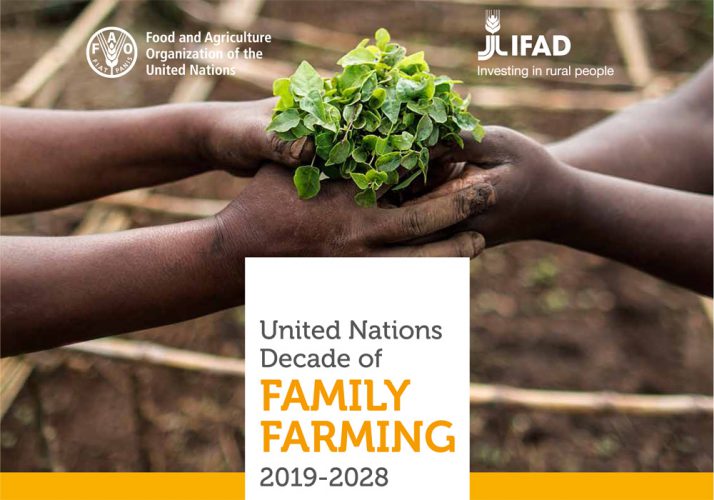The Global Launch of the United Nations Decade of Family Farming was held in Rome on Wednesday 29 May 2019, co-organized by FAO and IFAD as the Joint Secretariat of the UN Decade. The launch brought together farmers’ organizations, policymakers and many non-governmental organizations.
A GLOBAL ACTION PLAN TO WORK TOGETHER FOR COMMON GOALS
Through a Global Action Plan, the UNDFF provides detailed guidance for the international community on collective, coherent and comprehensive actions that can be taken to support family farmers. Designed around seven mutually reinforcing pillars of work, the Global Action Plan recommends a series of interconnected actions from the local to the global level.
The Global Action Plan of the UN Decade of Family Farming 2019-202812 aims at accelerating actions undertaken in a collective, coherent and comprehensive manner to support family farmers, who are key agents of sustainable development.
Given the extensive heterogeneity of family farms around the world, general policy prescriptions are unlikely to be relevant to all family farmers. To effectively support family farming, it is necessary to consider its particular geographic and socio-economic specificities and to develop context-specific interventions focused on the explicit features of the relevant family farmer groups, while building on locally available resources and capacities.
This plan is meant to provide a detailed guidance for the international community, including: local and national governments, parliamentarians, specialized agencies and other relevant bodies of the United Nations, international financial institutions and other international mechanisms, regional bodies, farmers and producer organizations, academic and research institutes, civil society organizations, and small and medium enterprises and the private sector, to achieve the main objectives of the UNDFF outlined in the vision statement.
It serves as a tool to create connections with ongoing processes and recommended approaches, where family farming, rural development and sustainable livelihood are already strongly interwoven, in order to develop and implement strategies at the global, regional, national and local levels. It offers a comprehensive instrument to support efforts to achieve the SDGs in the context of the progressive realization of the Right to Adequate Food.

